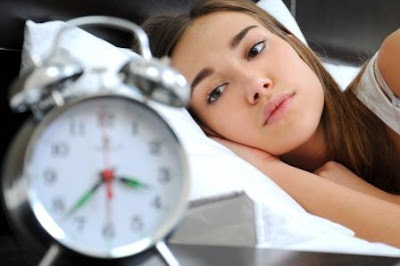what is Insomnia: Everything You Need To Know About This Slow Killer Disorder
what is insomnia?
Insomnia, also known as sleeplessness, is a sleep disorder where people have trouble sleeping. They may have difficulty falling asleep, or staying asleep as long as desired. Insomnia is typically followed by daytime sleepiness, low energy, irritability, and depression. The effects can be devastating. It may result in an increased risk of motor vehicle collisions, as well as problems focusing and learning. Insomnia can be short term, lasting for days or weeks, or long term, lasting more than a month.
Insomnia commonly leads to daytime sleepiness, lethargy, and a general feeling of being unwell, both mentally and physically. Mood swings, irritability, and anxiety are common associated symptoms.
Signs and symptoms of insomnia
- Difficulty falling asleep at night.
- Waking during the night.
- Waking earlier than desired.
- Still feeling tired after a night's sleep.
- Daytime fatigue or sleepiness.
- Irritability, depression, or anxiety.
- Poor concentration and focus.
- Being uncoordinated, an increase in errors or accidents.
- Tension headaches (feels like a tight band around head).
- Difficulty socializing.
- Gastrointestinal symptoms.
- Worrying about sleeping.
Insomnia itself may be a symptom of an underlying medical condition. However, there are many signs and symptoms that are associated with insomnia:
What causes insomnia?
Insomnia can be caused by psychiatric and medical conditions, unhealthy sleep habits, specific substances, and/or certain biological factors.
- Disruptions in circadian rhythm - jet lag, job shift changes, high altitudes, environmental noise, extreme heat or cold.
- Psychological issues - bipolar disorder, depression, anxiety disorders, or psychotic disorders.
- Medical conditions - chronic pain, chronic fatigue syndrome, congestive heart failure, angina, acid-reflux disease (GERD), chronic obstructive pulmonary disease, asthma, sleep apnea, Parkinson's and Alzheimer's diseases, hyperthyroidism, arthritis, brain lesions, tumors, stroke.
- Hormones - estrogen, hormone shifts during menstruation.
- Other factors - sleeping next to a snoring partner, parasites, genetic conditions, overactive mind, pregnancy.
Insomnia can also be caused by physical and psychological factors such as depression. Psychological struggles can make it hard to sleep, insomnia itself can bring on changes in mood, and shifts in hormones and physiology can lead to both psychiatric issues and insomnia at the same time.
insomnia treatment
Sleep hygiene and lifestyle changes are typically the first treatment for insomnia. Sleep hygiene includes a consistent bedtime, exposure to sunlight, a quiet and dark room, and regular exercise. Cognitive behavioral therapy may be added to this. While sleeping pills may help, they are associated with injuries, dementia, and addiction. Medications are not recommended for more than four or five weeks. The effectiveness and safety of alternative medicine is unclear
what is Insomnia: Everything You Need To Know About This Slow Killer Disorder
 Reviewed by Unknown
on
December 01, 2017
Rating:
Reviewed by Unknown
on
December 01, 2017
Rating:
 Reviewed by Unknown
on
December 01, 2017
Rating:
Reviewed by Unknown
on
December 01, 2017
Rating:



No comments